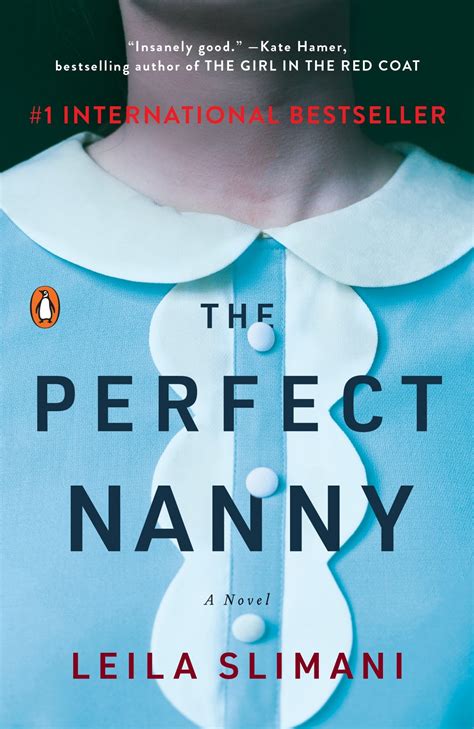Contemporary French Horror
“The baby is dead. It only took a few seconds.”
From that ice cold and clinical horrific opening, Leila Slimani‘s The Perfect Nanny draws us in, enrages us, engages us, disgusts us and toys with us. The best-selling novel of France in 2016 under the title “Chanson Douce” (Lullaby), the book was translated into English and re-titled with something more appropriate for the American reader. It is a difficult and unforgettable read, even though the text moves quickly with pacing akin to a potboiler. Rarely have I wanted to turn the page – and dreaded turning the page – with the same intensity. I finished it in one sitting. A few days later, went back to re-read certain sections.
The story is about the murder of two children by their nanny. Inspired by a New York City case, Slimani stated, the novel is its own creation, a study of Parisian life and work. This is not non-fiction dressed up. It is an invention, a creative endeavor, with most of the trappings of fact. There’s a precision to it. Slimani spins out her tale with journalistic precision. She has worked as a reporter and it shows.
In The Perfect Nanny there are no surprises, no hidden secrets. It opens with the murder, goes back in time, and finishes with the children’s death. Slimani avoids moralizing and speculation. She handles her characters with care and attention. We see the why and how of the relationships between children and nanny, children and parents, parents and nanny, and between the father and mother. Each of the characters are drawn as complex, imperfect people. They feel real.
The absence of a larger sense-making is dark. On the other hand, it is often authentic. Why or how could something like the murder of two children happen? There can be no reasons, no explanation.
Slimani writes very well but very good writing is no guarantee of a best-seller. True crime and crime in general are also popular, but they, too, do not automatically generate sales. What makes The Perfect Nanny so effective is the mix of topic and style. Slimani tapped into a primal fear, one that can grab every parent by the heart and not let go. There are few important novels about motherhood, and fewer still that map out a horror like this. It is both extraordinary and, in Slimani’s hand, all too possible. The parents at the heart of the film make reasonable choices. Far from perfect, they are also far from indifferent. Their everyday qualities, like that of their children, bring the horror home. They are two professionals, working to make better lives for themselves and their family, dependent upon others.
The Perfect Nanny is a horror story well-suited the twenty-first century, a crime of violence without meaning or catharsis.
David Potash
